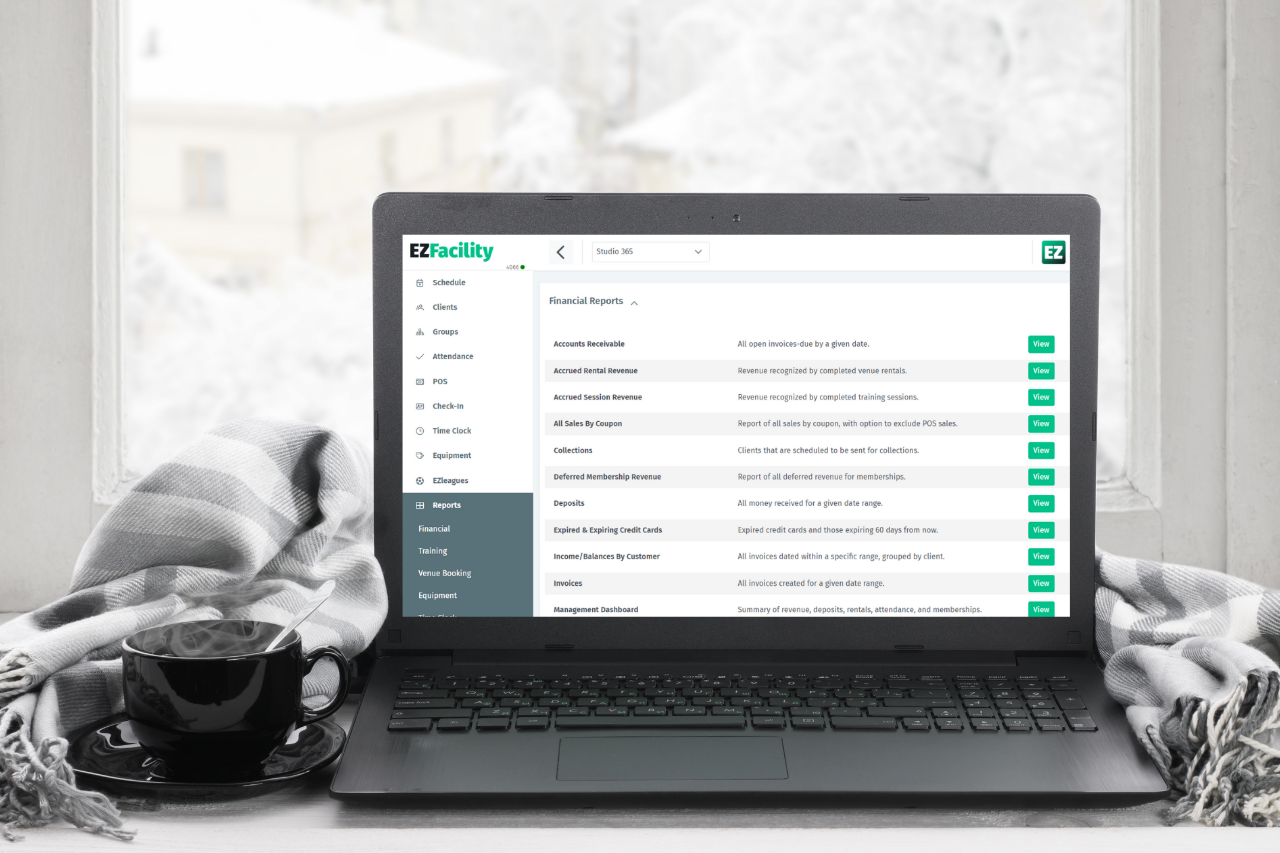Navigating the delicate practice of increasing fitness membership rates can be as arduous as a long set of burpees—unless you have a clear guide and strategy at hand. Whether you’re a seasoned gym owner looking to optimise your revenue or a health entrepreneur strategising on pricing models, this post will help you uncover the art and science of adjusting your fitness membership rates without losing your clientele or competitive edge.
Raising membership rates is more than just updating a number on a member’s payment plan—it’s an opportunity to redefine your gym’s value proposition, enhance the member experience, and ultimately, improve your business’s health. This post will cover essential areas from strategic timing to member involvement, so you can confidently steer your fitness facility towards sustainable growth and success.
The Importance of Raising Fitness Membership Rates
Raising membership rates is a strategic move for any fitness business seeking sustainability and growth. It’s essential for covering increased operating costs, investing in facility maintenance, and providing the latest fitness programs to remain competitive.
It’s important to understand that adjusting prices isn’t just about increasing revenue–it’s also about ensuring the longevity and quality of your services. Investment in better equipment, skilled personnel, and additional amenities are all crucial factors that necessitate a price increase. These enhancements, funded by revised pricing, ultimately benefit members and elevate the gym’s value proposition.
Assess your current rates and learn when to pull the ‘pricing lever’, as we will explore in subsequent sections.
Evaluating Current Gym Membership Rates
The stepping stone to increasing prices is understanding where you stand. Take a deep-dive into your current rates and consider the following:
- Are your rates reflective of the value you offer?
- What percentage of the average disposable income do your rates represent?
Conduct a thorough SWOT analysis of your pricing to identify areas for improvement, and ensure your rates are competitive but also reflect the quality of your services.
Before making changes, it’s crucial to analyse your current pricing structure. Assess how long it has been since the last increase and whether your rates reflect the quality of services offered.
Comparing your rates to those of competitors and assessing the financial health of your business are key steps in this process.
Evaluating Market Trends and Competitor Pricing
Understanding the landscape of gym membership costs in your area is vital. It’s essential to gauge market trends and adjust accordingly to stay competitive. Aligning your price point with the perceived value received by members is the sweet spot you’re aiming for.
Understanding the landscape of the fitness industry, including consumer behaviours and competitor pricing, is paramount. This entails being aware of the ongoing fees others charge and the value they offer in return. Align your rates with the value provided while ensuring your pricing strategy is competitive and market-aware.
Only by gauging market trends and peer pricing can you make informed decisions about increasing your fitness membership rates without being overpriced or undervalued.
Communicating Value to Members
One of the crucial steps before adjusting rates is to communicate the value proposition clearly with your members. This not only reassures your existing clients but also sets the stage for the premium you aim to command.
Showcasing improvements and additions to services
Document the enhancements in your facilities, new equipment, revamped classes, and the skills of your trainers. Bundle these advancements as added value to your membership fees, laying the groundwork for a justifiable rate increase.
Members are more likely to accept a rate increase if they see tangible enhancements in their gym experience. Whether it’s renovating existing spaces, expanding class offerings, or incorporating cutting-edge fitness technology, showcasing these improvements is key to justifying rate changes.
Strategic Timing for Rate Changes
Timing is everything when it comes to rate increases. Identify the best times for price increases that align with the natural ebb and flow of gym memberships. Factors such as seasonality, significant milestones or anniversaries, and economic conditions should influence the timing decision.
Identifying optimal times for rate adjustments is crucial for minimising disruption and member dissatisfaction. Announce changes well in advance to provide members with ample time to process the information and to reinforce the value these changes will bring.
Remember, timing should also reflect the financial forecast and operational strategy for your gym.
Identifying optimal times for rate adjustments
Selecting the right moment to adjust membership prices is crucial for member retention and satisfaction. Analyse membership renewal cycles, facility usage patterns, and the timing of new service rollouts.
Ideally, implement rate changes during a period of positive sentiment, such as following major improvements or at the start of a new year when members are motivated by resolutions.
Considering external factors like seasonality and economic conditions
When contemplating a price increase, it’s important to consider external elements that could influence member perception and financial flexibility. Seasonality can affect gym attendance.
For instance, a price hike in January may be better received than during the summer when attendance typically dips. Similarly, a strong economic climate might make a rate adjustment more palatable to members as opposed to times of economic hardship.
Thoughtful timing and consideration of both internal strategies and external influences are paramount in successfully implementing membership rate adjustments that maintain gym patron satisfaction and business viability.
Member Feedback and Involvement
Gathering member feedback before implementing a price increase is a critical part of the decision-making process. This feedback helps to inform your strategy by providing insight into member value perceptions and potential resistance points, in addition to helping you understand which services and benefits members are willing to pay more for.
By involving members in discussions about rate changes, gyms help foster a sense of community and co-creation, making members feel valued and heard. Clear communication regarding the reasons for a rate change, coupled with member input, can ultimately contribute to a smoother transition and increased member loyalty.
Open channels of communication, where feedback informs operational decisions, can result in a membership structure that reflects the true value members seek. Gyms that prioritise this collaborative approach are likely to foster greater loyalty and sustain a robust membership base despite the inevitability of rate changes.
Implementing Gradual Rate Increases
Implementing gradual rate increases can be an effective strategy for gyms to adjust their pricing without causing significant member upheaval. By phasing in the price increase over a predetermined period, members can acclimate to the change, reducing the risk of immediate cancellations. Gradual shifts are easier for members to digest compared to sudden hikes, leading to better retention.
The science behind gradual rate adjustments
Psychologically, gradual rate adjustments tap into the human propensity for loss aversion, where the pain of losing is psychologically twice as powerful as the pleasure of gaining. This principle suggests that sudden and substantial rate increases can trigger a strong negative response among gym members.
By introducing small, incremental changes, gyms can align the perceived value with the cost, allowing members to adjust without feeling the immediate impact of the loss. Furthermore, this strategy can also be supported by prospect theory, which posits that people evaluate potential losses and gains in a certain situation, and adjust their behaviour based on the potential for perceived benefits.
By managing rate adjustments in a gradual manner, gyms can guide members through a gentle transition, maintaining satisfaction and mitigating the risk of losing members due to cost aversion.
Creating Special Membership Tiers
Special gym membership tiers can act as a strategic tool to accommodate varying customer needs and enhance perceived value. A tiered approach allows members to understand and see the value in enhanced gym offerings or facility upgrades that necessitate higher fees.
This model not only incentivises upgrades as members’ engagement and investment in their fitness journey increases but also promotes a sense of community and belonging amongst those at higher tiers, further solidifying member loyalty.
Introducing premium memberships with added benefits
As the fitness industry evolves, the advent of premium memberships becomes a key differentiator for gyms aiming to offer exceptional value to their clientele. These memberships cater to the distinct needs of individuals who seek more than just the basics.
They bring with them a suite of exclusive benefits that go beyond standard offerings—think access to cutting-edge fitness technology, personalised wellness programs, and luxury amenities.
Ultimately, the implementation of tiered premium memberships is poised to elevate the fitness experience, paving the way for gyms to foster lasting relationships with members and secure a competitive edge in the wellness market.
Having a multi-tiered membership approach not only delivers personalised value to members at each level, but also serves as a strategic tool for health clubs to maximise both customer satisfaction and revenue growth.
Communicate Rate Changes Effectively to Members
Clear communication is vital when announcing rate changes. Provide ample notice and rationalise the need for an increase in a manner that underscores advancements in service quality and member experience.
Communicating rate changes to members requires a strategic and considerate approach to maintain trust and minimise dissatisfaction. Transparency is key—clearly explain why rates are changing, how the new pricing will bring additional value, and when the changes will take effect.
Presence and readiness to address concerns, through Q&A sessions, feedback mechanisms, or one-on-one discussions, will demonstrate the commitment to member satisfaction and may help retain memberships despite the changes.
By approaching rate changes with a transparent, member-centric strategy, gyms can not only navigate the delicate process of adjusting prices but also reinforce the value proposition to their members, ensuring the community grows stronger, even as the business evolves.
Addressing Common Objections to Rate Increases
Prepare to address concerns and reassure members that the increases are a step towards enhancing their fitness experience and support for their goals.
It’s natural for some members to resist changes in pricing. Address these objections by being prepared with responses that spotlight the added value they receive, and the investments made to improve their fitness environment.
It’s crucial to listen carefully to member concerns and respond with empathy. Prepare responses to common questions that provide clear, factual information and reiterate the added value that members will receive.
For example, if a member is concerned about the cost, detail how the rate increase will support enhancements in gym facilities, access to more diverse class offerings, or investment in top-tier fitness equipment.
Always ensure the conversation ends with members feeling heard and understood. If possible, create a feedback loop that allows for continual improvement based on member input, thus demonstrating that their opinions are not only heard but also valued and acted upon.
Utilise Member Management for Convenience
Leverage technology–for example, EZFacility’s gym member management software–can have a transformational impact on streamlining the rate change process by offering convenient billing management, automated notifications, and personalised member engagement—critical tools when updating pricing structures.
By utilising these technologies, gyms can ensure that all members are promptly and efficiently informed about rate adjustments while also providing them with the option to easily manage their memberships online.
Additionally, software with built-in analytics can provide valuable insights into member engagement and retention rates, allowing gyms to make data-driven decisions when it comes to adjusting pricing structures in the future.
investing in member management software not only simplifies the process of rate changes, but also enhances the overall experience for both members and staff. Adopting this digital approach minimises confusion and administrative burden, allowing the gym staff to focus on what’s important—member satisfaction and the quality of service they provide.
Conclusion
Raising fitness membership rates can be a transformational step for your fitness business, enhancing services, strengthening your value proposition, and ensuring long-term sustainability. Remember: the goal is not just about raising rates–it’s about raising the bar on what you offer.
Aim for transparency and underscore each decision with the intention to elevate the member experience, and you’ll find an audience receptive to growth, both in their fitness journeys and in supporting the facilities that make those journeys possible.
By following the strategies outlined in this comprehensive guide, you can approach the delicate process with confidence and finesse, securing both your financial health and the loyalty of your members.
Unlock the full potential of your fitness facility with EZFacility’s comprehensive management software designed to empower gym owners like you to seamlessly implement membership price increases without jeopardising member satisfaction. Try EZFacility for free.









